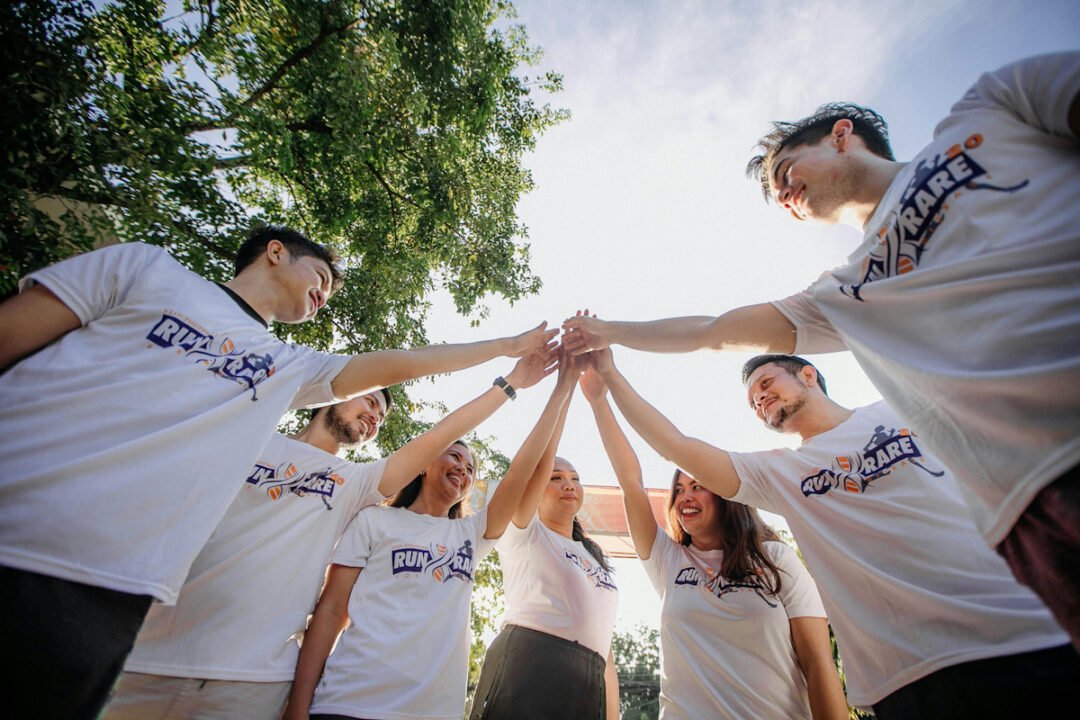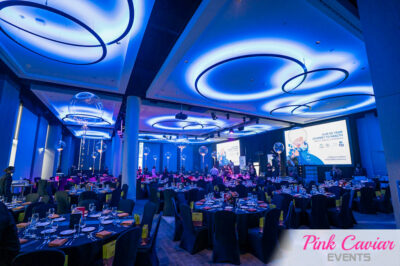Team building events are a great way to foster staff bonding and encourage creative brainstorming. But what exactly are these events, and how can they benefit employee morale and relationships? This blog will explore the power of team-building exercises and how they can improve teamwork and mental health. So grab a cup of coffee and join us on this informative journey!
Team Building Events: Fostering Powerful and Positive Workplace Relationships

Definition of team building events
Team-building events are organised activities or exercises designed to improve the dynamics and performance of individuals working together professionally. These events aim to enhance communication, collaboration, trust, and problem-solving among team members. The indoor or outdoor activities may include exercises such as team challenges, problem-solving tasks, icebreakers, and group discussions. Overall, team-building events allow team members to interact in a more relaxed and informal setting outside their usual work environment.
Importance of team building events for fostering workplace relationships
Team building events play a crucial role in fostering workplace relationships and strengthening the bond among team members. These events provide a platform for individuals to get to know each other personally, which can lead to increased trust and camaraderie within the team. By participating in team-building activities, employees are encouraged to collaborate, communicate, and solve problems together, which can ultimately improve their working relationships. Moreover, team building events can boost morale, motivation, and overall job satisfaction, as they create a sense of belonging and unity among team members.
The Role of Team Building Events in Boosting Employee Morale and Relationships
Team building events are crucial in boosting employee morale and strengthening relationships among staff members. These events, such as engaging in teamwork exercises or creative brainstorming sessions, allow employees to bond and collaborate in a non-work environment. By promoting a sense of camaraderie and fostering positive interactions, team-building events contribute to improved teamwork and mental health within the organisation. Incorporating these events into the corporate culture can enhance employee satisfaction and productivity.
Enhancing Employee Engagement and Motivation
Employee engagement and motivation are crucial for a productive and successful workplace. To enhance employee engagement, organisations can provide opportunities for growth and development, encourage open communication and collaboration, and recognise and appreciate employees’ contributions. By fostering a sense of purpose, setting clear goals, and offering rewards and incentives, employees are more likely to feel motivated and engaged in their work. Regular feedback and performance evaluations can also help identify areas for improvement and create a supportive environment for personal and professional growth.
Breaking Down Communication Barriers
Effective communication is essential for a harmonious and productive work environment. Breaking down communication barriers involves promoting open and transparent communication channels. Encouraging active listening, providing feedback, and promoting a culture of respect and understanding can eliminate misunderstandings and improve collaboration. Various communication tools and technologies, such as instant messaging platforms and project management software, can also enhance communication efficiency and reduce barriers caused by distance or time zones.
Creating a Positive Work Culture
A positive work culture is vital for employee satisfaction, well-being, and productivity. Organisations can create such a culture by prioritising work-life balance, fostering a supportive and inclusive environment, and promoting a healthy work environment. Encouraging teamwork, celebrating achievements, and providing opportunities for social interaction can also contribute to a positive work culture. Additionally, organisations should ensure that policies and procedures are fair and transparent and that employees are treated with respect and dignity.
Building Trust Among Team Members
Trust is the foundation of any successful team. Building trust among team members involves creating an environment where individuals feel safe to express their opinions, take risks, and share their ideas. Organisations can encourage open and honest communication, promote accountability and transparency, and recognise and appreciate individual contributions to build trust. Establishing clear expectations, providing support and resources, and fostering a collaborative and respectful workplace culture can also build trust among team members.
Utilising Team Events to Improve Teamwork
Teamwork exercises and staff bonding activities have become essential in today’s corporate world. Creative brainstorming sessions and interactive team-building events can significantly enhance employee morale and foster stronger colleague relationships. These events promote teamwork and contribute to better mental health within the workforce. By organising team events focusing on collaboration and communication, companies can create an environment that nurtures a sense of unity and cooperation among employees.
Promoting Collaboration and Synergy
Promoting collaboration and synergy within a team or organisation is crucial for success. By encouraging team members to work together and share their ideas and expertise, the overall quality of work can significantly improve. Collaboration allows team members to pool their knowledge and skills, leading to innovative solutions and increased productivity. Synergy, on the other hand, refers to the combined effort of individuals working together to achieve a common goal. When collaboration and synergy are fostered, teams can leverage the strengths of each member, resulting in a more cohesive and effective work environment.
Encouraging Effective Communication
Effective communication is the cornerstone of any successful team or organisation. It is essential for conveying information, sharing ideas, and fostering understanding among team members. Encouraging open and honest communication helps avoid misunderstandings and promotes a positive and collaborative work environment. Effective communication also involves active listening, which allows team members to understand each other’s perspectives and concerns truly. By encouraging effective communication, teams can build stronger relationships, resolve conflicts efficiently, and achieve better overall outcomes.
Developing Problem-Solving Skills
Developing problem-solving skills is crucial for individuals and teams to overcome challenges and achieve their goals. Problem-solving involves analysing issues, identifying root causes, and finding innovative solutions. Organisations can create a culture of continuous improvement and adaptability by providing opportunities for team members to develop their problem-solving skills. Developing these skills also promotes critical thinking, creativity, and resilience, which are essential for navigating complex and ever-changing work environments.
Increasing Productivity and Efficiency
Improving productivity and efficiency is a common goal for many teams and organisations. By implementing strategies and processes that optimise workflow and eliminate unnecessary tasks, teams can achieve higher output levels with fewer resources. Increasing productivity and efficiency often involves streamlining processes, leveraging technology, and setting clear goals and expectations. By doing so, teams can maximise their time and resources, leading to improved outcomes, increased customer satisfaction, and a competitive advantage in the market.

The Impact of Team Building Events on Mental Health
Team building events are not just about staff bonding and creative brainstorming; they also significantly impact mental health. These exercises allow employees to come together, collaborate, and build strong relationships. By engaging in activities that promote teamwork, individuals feel a sense of belonging and support, ultimately boosting their overall morale. Additionally, team events offer a break from the daily work routine, allowing participants to relax and rejuvenate their minds. Overall, these events are a powerful tool to improve teamwork and mental well-being in the workplace.
Reducing stress and fostering work-life balance
In today’s fast-paced and demanding work culture, organisations must prioritise reducing stress and fostering work-life balance among their employees. By implementing flexible work hours, remote work options, and wellness programs, companies can help their employees manage their workload and personal responsibilities more effectively. This reduces stress levels and enhances productivity and job satisfaction, leading to a happier and healthier workforce.
Enhancing employee well-being and job satisfaction
Employee well-being and job satisfaction are essential for an organisation’s overall success. Employers can enhance employee well-being by offering benefits such as comprehensive healthcare plans, mental health support, and fitness initiatives. Additionally, providing opportunities for professional growth and development, recognising and rewarding employees’ achievements, and promoting a positive work culture that values open communication and collaboration can significantly contribute to job satisfaction. Employees who feel valued and supported are likelier to be engaged, motivated, and loyal to their organisation.
Addressing conflict resolution and managing workplace stressors
Conflict resolution and managing workplace stressors are critical to maintaining a healthy work environment. Organisations should establish clear policies and procedures for resolving conflicts and train employees on effective communication and conflict-resolution techniques. Additionally, it is essential to identify and address workplace stressors such as heavy workloads, unrealistic deadlines, or lack of resources. By actively addressing these issues, organisations can prevent the negative impact of stress on employee morale, productivity, and overall well-being.
Creating a supportive and inclusive environment
Creating a supportive and inclusive environment fosters a sense of belonging and promotes organisational diversity. Employers can achieve this by implementing policies and practices that promote equal opportunities, diversity training programs, and establishing employee resource groups. Encouraging open dialogue, active listening, and valuing different perspectives help create a culture of respect and inclusion. A supportive and inclusive environment attracts and retains top talent and creates a positive work atmosphere where employees feel valued and motivated to contribute their best.
Planning and Organizing Effective Team Building Events
Team-building events are crucial for fostering a positive work environment. Employees can develop stronger relationships and boost their morale through teamwork exercises and staff bonding activities. Creative brainstorming sessions during these events can also lead to innovative ideas and solutions. Additionally, team events can significantly improve teamwork and mental health among employees.
Identifying the Objectives and Desired Outcomes
Before planning any team-building event, it is crucial to identify the objectives and desired outcomes. This involves understanding the specific goals the company wants to achieve through the event, such as improving communication, fostering collaboration, or enhancing morale. By clearly defining these objectives, event organisers can better tailor activities and strategies to meet these goals effectively.
Choosing Suitable Team-Building Activities
Selecting appropriate team-building activities is critical to creating a successful event. It is essential to consider factors such as the size of the team, the level of physical activity desired, and the comfort level of participants. Activities can range from trust-building exercises to problem-solving challenges or even outdoor adventures. By choosing activities that align with the goals of the event and the preferences of the participants, organisers can ensure engagement and meaningful interactions among team members.
Tailoring Events to the Company’s Culture and Workforce
To maximise the impact of team-building events, it is essential to consider the company’s culture and workforce. This involves understanding the values, beliefs, and behaviours that define the organisation and its employees. By aligning the event with the company’s culture, organisers can create an environment that resonates with participants and encourages them to embrace the desired outcomes. Incorporating elements that reflect the company’s identity and values will help participants connect with the event on a deeper level and increase its effectiveness.
Ensuring Proper Logistics and Post-Event Evaluation
To ensure the smooth execution of a team-building event, proper logistics planning is necessary. This includes arranging transportation, securing suitable venues, and coordinating resources and materials required for the activities. Additionally, conducting a thorough post-event evaluation is crucial to assess the event’s success and gather participant feedback. This evaluation helps identify areas of improvement and provides insights for future team-building initiatives. Organisations can enhance team-building events’ overall effectiveness and impact by continuously evaluating and refining the event planning process.
Conclusion
Team building events offer a dynamic approach to enhancing employee morale and strengthening relationships within the staff. Companies can foster a sense of unity and camaraderie among employees by engaging in creative brainstorming and implementing various teamwork exercises. Moreover, these events can also contribute to improved teamwork and mental health, allowing individuals to collaborate, communicate, and support one another. Incorporating team building events into corporate culture can profoundly impact the organisation’s overall success and well-being.
Dimitri Cassimatis is the Marketing Manager at Pink Caviar Events, a corporate event management and styling company based in Sydney, Australia. With a background in marketing and communications, Dimitri brings a wealth of expertise to his role, including strategic planning, branding, and digital marketing. He is passionate about creating engaging content that resonates with Pink Caviar’s target audience and helps to drive the company’s growth. Dimitri is also committed to staying up-to-date with the latest trends and best practices in marketing, and regularly attends industry events and conferences.



